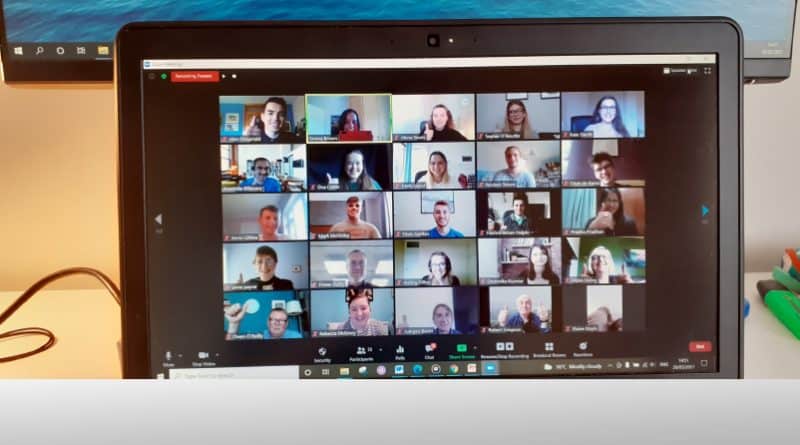Where There Is No Engineer (WTINE) National Finals: Creating a Community of Global Designers
The COVID-19 pandemic and climate change emergency make it clear we need to throw out the old development playbook and write a new one. The “Where There Is No Engineer” initiative is designed to equip students with the skills to create infrastructure and services that put human needs at their core and help create equitable communities.
On Saturday 29 May, third-level students from across the island of Ireland took part in the seventh annual National Finals of the “Where There Is No Engineer” competition. Where There Is No Engineer: Designing for Community Resilience is a design initiative that aims to inspire the next generation of professionals to create sustainable solutions to development challenges faced by communities around the world. Participants explore solutions to infrastructure, water, health, energy and food security challenges, focusing on a particular location and people.
The WTINE design initiative, which is jointly run by Engineers without Borders (EWB) Ireland and the Development Technology in the Community (DTC) Research Group, encourages students to invent and innovate, developing the mindset required to tackle the challenges we face in the 21 century. One former participant, Conall Casey, explains the impact the program has: “Taking part in the WTINE competition, I experienced for the first time what it was like to have people see real value in my work and in my ideas. It’s been of great value to me professionally.”
A core strength of the initiative is its flexibility and interdisciplinary nature. Currently engineers, architects and product designers participate in the challenge. The WTINE National Finals at the end of May saw engineering students from Trinity College Dublin, product designers from TU Dublin and architecture students from Waterford IT all compete to win the opportunity to develop their concept further.
EWB and DTC’s partners this year are Zamda Ireland. ZAMDA Ireland are a registered charity dedicated to providing direct and effective aid to a number of projects in and around the city of Kabwe in Zambia. Their main priority is supporting “Sables”, a centre for Kabwe’s street children. EWB and DTC’s long-term aim for the partnership with Zamda is to create a village technology education centre in Kabwe, where pupils learn core scientific concepts at an early age and develop their technical skills within the education system.
WTINE students this year designed solutions ranging from water filtration devices to off grid windbelt generators to climate resilient schools.
The judging panel was composed of professionals from a variety of organisations including EWB funders Bentley Systems and Irish Aid and EWB partners Field Ready and Engineers Ireland.
Following tough deliberations, two architecture students, Alan Fitzgerald and Mark McGinley, were selected as the overall winners for their vibrant school design concepts that strongly incorporated the use of climate resilient materials, social considerations and community partnership. The H2Go product design team were selected as the Innovation Award winners for their water filtration educational booklet which aims to educate the next generation of Zambians on how to produce clean, safe water.
The overall winners Mark and Alan will work with professionals at Bentley Systems to bring their designs to life using Bentley’s software.
EWB and DTC would like to sincerely thank all WTINE finalists for their participation in the competition this year and commend all students who took part on the effort they put into their projects in unusual circumstances.
Professionals in the 21 century need to innovate, connect their values to their work and collaborate across disciplines to maintain the earth we live on and ensure all humans can thrive. WTINE not only helps students develop practical skills but also a new perspective on the professional contribution they can make to ensuring just, sustainable development; putting communities at the heart of projects.
EWB and DTC look forward to expanding WTINE and the next chapter of development of the initiative.
More information on the WTINE initiative can be found at: www.wherethereisnoengineer.org. You can contact Emma at EWB Ireland at emma.brown@ewb-ireland.org.

